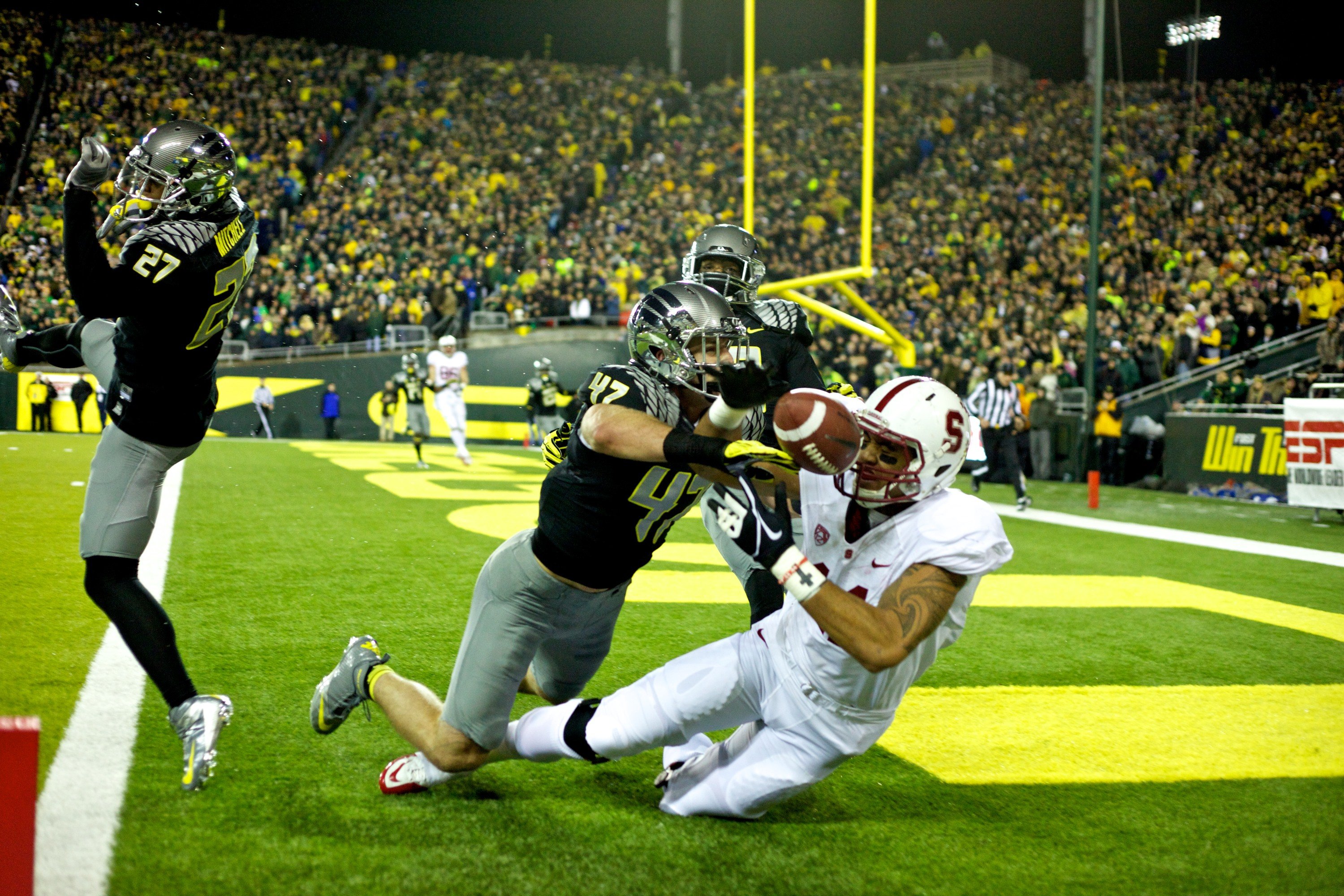Stanford’s main football rival over the last three seasons, Oregon, admitted to major NCAA violations by its football coaches in a report released Monday night, marking the most definitive move since the Ducks’ controversial dealings with talent evaluator Willie Lyles were exposed in early 2011.

Oregon has proposed a self-imposed two-year probation and the loss of a single scholarship for the next three years.
Portland’s KATU television first reported the Ducks’ suggested penalties after the program acknowledged that its football coaches committed at least one major violation related to the NCAA’s ongoing investigation into their recruiting practices from 2008 to 2011.
Oregon will still face the NCAA’s infractions committee, which may very well increase the penalties, regarding the investigation. Negotiations by the two sides broke down in December.
Former head coach Chip Kelly, who was at the helm of the program when the violations occurred, may have left the University of Oregon behind for green(er) pastures in Philadelphia, but the former Stanford football nemesis appears to have bailed out of Eugene at exactly the right time.
Yahoo Sports! reported in 2011 that Oregon had paid Lyles’ service $25,000 for a national recruiting package. Lyles later admitted that, in the days before the story ran, Kelly had asked him to compile player profiles to legitimize the transaction. But those profiles were a year out of date, and suspicion spread that the payment was actually meant for Lyles to direct one of his advisees, running back Lache Seastrunk, to sign with Oregon. Seastrunk did end up with the Ducks before later transferring to Baylor.
The NCAA’s ensuing investigation marked the Pac-12’s most significant incident since a scandal in the USC football, men’s basketball and women’s tennis programs. The Trojan football team was punished with a two-year bowl ban (in 2010 and 2011) and lost 30 scholarships over three years.
Oregon’s penalties won’t be nearly as harsh, as NCAA investigators had “no finding of lack of institutional control and no finding of unethical conduct,” two of the most important factors in the USC case.
Stanford upset the then-No. 2 Ducks 17-14 at Autzen Stadium last year, marking the Cardinal’s first win against Oregon since 2009. In each of the last three seasons, the game has kept the otherwise undefeated loser out of the BCS National Championship.
This season, Oregon and Stanford meet in a marquee showdown on a Thursday night, Nov. 7, at Stanford Stadium.
An earlier version of this article incorrectly reported the date of the 2013 Oregon-Stanford game. It will be played on Nov. 7, not Oct. 7.
Miles Bennett-Smith contributed to this report.
Contact Joseph Beyda at jbeyda “at” stanford.edu.
